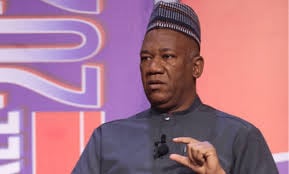Labour Party Bleeds Members as 21 Lawmakers Defect Ahead of 2027 Elections
Since Nigeria’s 2023 general elections, the Labour Party (LP)—once celebrated as Nigeria’s fastest-growing political movement—has suffered a significant setback, losing at least 21 elected lawmakers within just a year. This mounting wave of defections signals a turbulent political landscape for the party as it prepares for the 2027 elections.
A Rapid Rise and Worrisome Decline
Riding high on the popularity of its 2023 presidential candidate, Peter Obi, LP made remarkable gains across the national political sphere, winning seats in the Senate, House of Representatives, and various state assemblies. However, the initial momentum has rapidly unravelled, with lawmakers switching allegiance and deep-seated internal conflicts coming to the surface.
The Crack in the Foundation: July 2024 Defections
The first major crack appeared in July 2024, when Senator Ezenwa Onyewuchi of Imo East defected to the All Progressives Congress (APC). His departure marked the beginning of a domino effect that exposed underlying divisions within the party.
Following Onyewuchi’s move, five House of Representatives members from different states also left LP:
- Chinedu Okere (Imo State)
- Mathew Donatus (Kaduna State)
- Bassey Akiba (Cross River State)
- Esosa Iyawe (Edo State)
- Alfred Iliya Ajang (Plateau State)
The defections continued to grow, with Rep. Dalyop Chollom of Plateau State also jumping ship, exacerbating the crisis.
Trouble in Strongholds: Enugu State
The situation became even more critical in Enugu State, once considered a Labour Party stronghold. Six lawmakers from the Enugu State House of Assembly defected to the People’s Democratic Party (PDP), citing loss of confidence in party leadership and internal cohesion as primary reasons:
- Ejike Eze
- Johnson Ugwu
- Pius Ezeuwa
- Amuka William
- Osita Eze
- Princess Ugwu
This internal haemorrhage was not limited to state assemblies; three federal lawmakers from Enugu—Dennis Agbo, Chidi Obetta, and Sunday Umeha—also defected, with some joining the PDP and others defecting to the APC.
High-Profile Departures in the Senate
The exodus extended to the upper chamber, with Senator Ireti Kingibe representing the Federal Capital Territory (FCT) and Senator Neda Imasuen of Edo South leaving the party. Their exits further diminished LP’s influence in the Senate. Additionally, two other members of the House of Representatives from Enugu—Chimaobi Atu and Paul Nnanchi—resigned in mid-2025.
A Growing List of Defectors
Altogether, the 21 lawmakers from diverse states, including Imo, Kaduna, Cross River, Edo, Plateau, Enugu, and the FCT, have joined either the APC or PDP. They cite various reasons such as organisational weakness, misalignment with central government policies, and the need for political survival ahead of 2027.
Here’s the full list of those who have defected from the Labour Party:
- Senator Ezenwa Onyewuchi (Imo East)
- Chinedu Okere (Reps, Imo)
- Mathew Donatus (Reps, Kaduna)
- Bassey Akiba (Reps, Cross River)
- Esosa Iyawe (Reps, Edo)
- Alfred Iliya Ajang (Reps, Plateau)
- Dalyop Chollom (Reps, Plateau)
- Ejike Eze (Enugu State Assembly)
- Johnson Ugwu (Enugu State Assembly)
- Pius Ezeuwa (Enugu State Assembly)
- Amuka William (Enugu State Assembly)
- Osita Eze (Enugu State Assembly)
- Princess Ugwu (Enugu State Assembly)
- Dennis Agbo (Reps, Enugu)
- Chidi Obetta (Reps, Enugu)
- Sunday Umeha (Reps, Enugu)
- Malachi-Okey Onyechi (Enugu State Assembly)
- Ireti Kingibe (Senator, FCT)
- Neda Imasuen (Senator, Edo South)
- Chimaobi Atu (Reps, Enugu)
- Paul Nnanchi (Reps, Enugu)
Party’s Response and Legal Threats
In response, LP’s National Publicity Secretary, Obiorah Ifoh, announced plans to compile the list of defectors for a ‘Hall of Shame’ and vowed to pursue legal action under Section 68(g) of Nigeria’s 1999 Constitution, which addresses party defections not based on internal divisions. He insisted the defections are driven by political opportunism rather than any failure on the party’s part, labelling it a betrayal of voters’ trust.
Analysts’ Perspective: Peter Obi’s Hype and Structural Weaknesses
Political analysts attribute the decline to the absence of solid institutional structures in LP. Professor Kamilu Sani Fage, a noted political scholar, observed that the party’s remarkable 2023 success was largely driven by Peter Obi’s appeal rather than a resilient organisational foundation. He warned that without Obi’s continued influence or sustained popularity, LP risks complete disintegration.
Looking Ahead
As the 2027 elections loom, the ongoing defections pose significant questions about the future of the Labour Party. Will it rebuild its internal cohesion, or will it continue to fracture under political pressure? The coming months will reveal whether LP can recover and establish a durable political infrastructure beyond the Peter Obi phenomenon.



